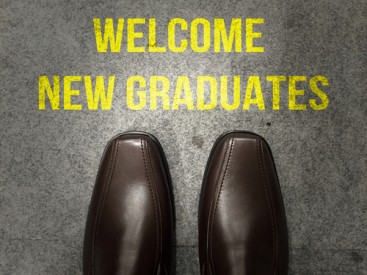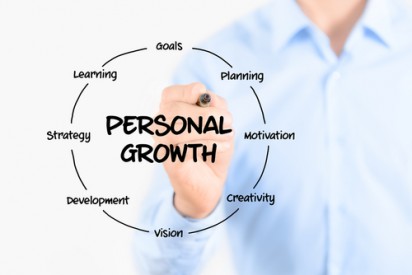Soft Skills – Importance Explained
You’ve the technical expertise and experience for the position – but do you possess the soft skills that businesses are looking for?
‘Many applicants see hard skills as appropriate and soft skills as ‘good to have’ or less important. The contradiction, obviously, is that many most difficult tasks are accomplished by using well-crafted soft skills like convincing, guiding and negotiating’ we at JRG Partners are firm believers of this thought and clearly understand the importance of soft skills.
Although one may not give much thought to one’s soft skills, businesses value these more higher than we may realize.
‘With many sectors experiencing skills shortages, most organizations are ready to coach individuals for the technical skills they desire – but they cannot ‘teach’ soft skills since these are produced through experience,’ says Emma Sue Prince, author of The Advantage: The 7 Soft Skills You Need to Stay One Step Ahead.
Exactly how do you persuade an employer that you’ve the soft skills they might be looking for?
Utilize your CV to share a narrative

‘It’s the way you write about your soft skills within your CV that’ll distinguish you from other people,’ says Emma Sue.
‘You will want to adapt your CV for the role you are trying to get, making certain you demonstrate that you fulfill the job requirements, and tell a story of who you are, to ensure individuals can relate to you as an individual. You do this by including your achievements and real-life encounters.’
However what if you’re a new graduate with minimal work experience?

‘Employers need to see proof that you’ve strong work ethic, determination, communication skills and team work. Examples do not need to originate from employment – volunteering or even community work can prove these too.’
That doesn’t indicate divulging your life history! Make your cv to a couple of pages essentially.
‘Always remember that CVs hardly get read’, adds Emma Sue. ‘To find work, you’ve got to be proactive – that implies networking, visiting the locations where your potential employers are likely to be and following and pursuing leads. This way, whenever your CV lands on their desk they may be able to put a face to a name.’
Understand your strong points

‘Look for those instances when you say “things just happened … all of it came together right at the last minute”, indicates John. ‘Who made it come together? Whether it was you, how did you get it done? The clue for any skill that has value is the fact that things changed as a result of your participation.
‘Ask someone who watched the event what it was you did, then, consider how you can repose on that experience. Make smarter connections in between the skills you employ outside work and whatever you do best 9-5.
‘Alternatively, narrate to a friend about a time when you did anything important, and request them to write the skills mentioned in your story. Every occasion you can take to get people to remind you of what you do well heightens your self confidence.’
Build your self confidence
Emma Sue in addition emphases the benefits of building confidence. Every little thing, from how you dress up and walk into the room to how you shake the interviewer’s hands, will tell them relating to your soft skills, she says.
‘Concentrate on the gestures, the manner in which you sit and make eye-to-eye contact, and practise “power poses”, as proven by Amy Cuddy, just before you enter the room.’
‘Standing in a posture of self esteem, even when we do not feel confident, affects androgenic hormone or testosterone and cortisol amounts in the human brain and impacts the way we come across,’ she explains.
Listen carefully
During the interview you should constantly be looking for possibilities to tell your story. To do that, you need to “listen really, really well”, claims Emma Sue.
‘the majority of us don’t listen effectively because we’re anxious. Cope with nerves first by making use of confidence-building and relaxation methods and investigating the role and firm.
‘Then, for instance, if your interviewer questions you, “How will you define leadership?” instead of “let me know concerning an occasion you exhibited leadership?” you can easily begin by creating a common statement that answers the query and then launch into your story regardless of whether there’s an invite to tell it.
‘Ultimately, your story probably will be more memorable compared to your philosophy. So, always relate things back to your own experiences. If, they ask in regards to performing in a group or handling complicated projects, associate this to whenever you have had to do that – whether or not that is a voluntary project or anything that challenged you in a certain way.’
Think of and use the STAR Format
Master the skill of storytelling following the STAR layout – Situation, Task, Action and Results.
‘Give a summary of the situation and the task in a minute or less, what measures you took to address the concerns, and then quantify and qualify the outcomes you achieved by using your soft skills,’ clarifies Emma Sue.
‘When organizing for a job interview, therefore, get these stories well prepared and pick those that highlight numerous soft skills – being an effective team player, for example, means balancing cooperation with initiative and leadership in some cases too.
‘Flexibility normally indicates problem-resolving skills and resourcefulness along with being flexible, normally flexible appears like you just go along with the flow!’
Finally, employers want people who happen to be adaptable and can deal with uncertainty. When they ask or toss a curve ball question to you, you will need to think on your feet.
‘Be passionate and positive regardless of what question comes your way. Positive people are the ones that will get ahead as opposed to simply manage,’ states Emma Sue.

